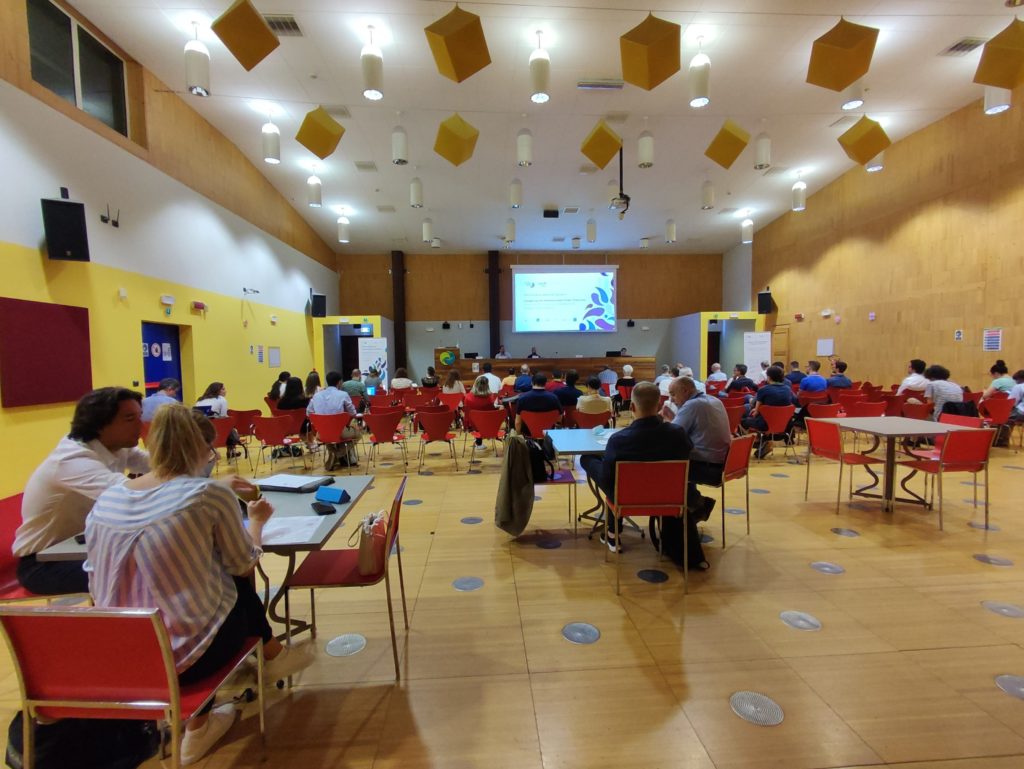Boosting the Mediterranean green transition from local initiatives
The Interreg MED Renewable Energy Community gathered in Torino on the 22nd of June for a networking event, to discover funding opportunities and potential synergies to boost local green transition projects.

The Interreg MED Renewable Energy project community met at Environment Park’s Centro Congressi on the 22nd of June for the ETU Networking event. The event brought together regions and entities that are not necessarily familiar with European Union (EU) funding programmes, to understand the opportunities these programmes offer, and to create connections with technical organisations that may support them in transitioning towards greener Mediterranean territories.
The event was organised by Environment Park – the project’s Italian partner – and offered an opportunity to present the work done by the Renewable Energy project’s ETU Initiative to support the energy transition across the Mediterranean. Cynthia Echave – Project Coordinator, Euro-Mediterranean Economist Association (EMEA) – presented the ETU Initiative and the tools and resources that it offers to local authorities to boost the energy transition in their region. Echave used the work done with the ETU’s nine Flagship Case municipalities – selected to implement and test the ETU Toolbox – to showcase how the ETU Toolbox can support municipalities and local organisations in the energy transition.
Patrick Biard – Head International Affairs, Auvergne-Rhône-Alpes Energie Environnement (AURA-EE) & Deputy Secretary General at FEDARENE –, Kostas Komninos – General Manager, DAFNI Network of Sustainable Greek Islands–, Barbara La Licata – Project manager area Green Chemistry, Environment Park –, and Angelo Tartaglia – Professor, Politecnico di Torino & Pinerolese Energy Community Association – also shared their experiences in a panel discussion on working in different projects and initiatives to boost the local green transition.
However, as highlighted by all the panellists, there are still many challenges to overcome to make the local green transition a reality across the Mediterranean. For example, Tartaglia and Biard stressed that there is still a lot of work to do in implementing joint activities, aligning the citizens’ communities and the market in the creation of energy communities, and informing citizens to overcome societal barriers.
During the event’s second session, five different EU funding programmes were presented: Interreg Euro-MED, Interreg Central Europe, Interreg Alpine Space, NEXT MED – previously ENI CBC MED –, and LIFE. All of these programmes have funding opportunities available for renewable energy and green transition projects and initiatives in the Mediterranean region, as explained by the programmes’ representatives.
The event’s final session allowed participants to meet with the EU funding programme representatives and network amongst themselves. The networking session – developed with the support of the digital platform SwapCard – allowed participants to share knowledge and experiences directly, and to find potential partners and synergies for future green transition projects across the Mediterranean.